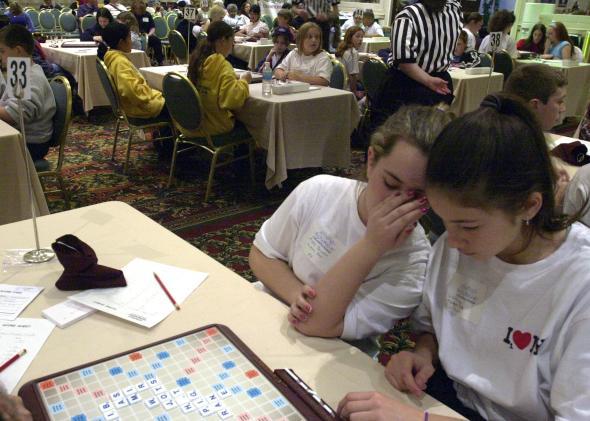This question originally appeared on Quora, the best answer to any question. Ask a question, get a great answer. Learn from experts and access insider knowledge. You can follow Quora on Twitter, Facebook, and Google Plus.
Answer by Joshua Engel:
English speakers have a surreal fascination with obscure words.
I don’t know if this is unique to English speakers. Maybe everybody does it. But there are a lot of words that are “in” the English language, primarily in the sense of being in dictionaries of the English language. Those dictionaries are full of Nonce words, created for a one-off purpose and never used again. But dictionary-makers love those words, and as long as they have a citation, they’ll put it in the dictionary.
The word nonce was coined by the creator of the Oxford English Dictionary, which is crammed full of nonce words. There are whole dictionaries filled with nothing but nonce words, such as Mrs. Byrne’s Dictionary of Unusual, Obscure, and Preposterous Words. Rich Hall coined the word sniglet for making up a word just because you want it to exist and published several books of it. Douglas Adams published a similar book,The Meaning of Liff.
I don’t know why such things exist, but English speakers appear to love this game. They love to make up words, and the dictionary-makers are obsessed with collecting them. They’ll similarly suck up any word ever used in any dialect of English. The makers of the Scrabble dictionary are the worst, randomly accumulating words from foreign languages when they’re likely to prove useful in the game but are never otherwise used.
In my opinion, it’s a bit misleading to even call such things “English words.” The actual English language, in use, is not significantly larger than other major languages. An abridged dictionary is going to cover the vast majority of words that see real use, and using words from outside that set often seems affected rather than precise. It has left English with a lovely collection of subtle differences between words with nearly the same surface meaning, and I think that has had a beneficial effect on English prose, but it’s practically designed to exclude foreigners.
Which may actually be the answer. There’s a one-upmanship (in any language) to marking in-groups and out-groups with vocabulary. Knowledge of obscure words is seen in some circles as a mark of intelligence. That’s not completely absurd, since vocabulary does correlate with reading, and knowledge of obscure topics will bring topic-related jargon. But a lot of the more absurd words seem to exist solely for the purpose of showing off that you know the words.
In my opinion, if you Google a word and the first few links are dictionary entries, then the word isn’t really a functional part of the English language anymore, if it ever were. It’s best ignored.
More questions on Quora:
